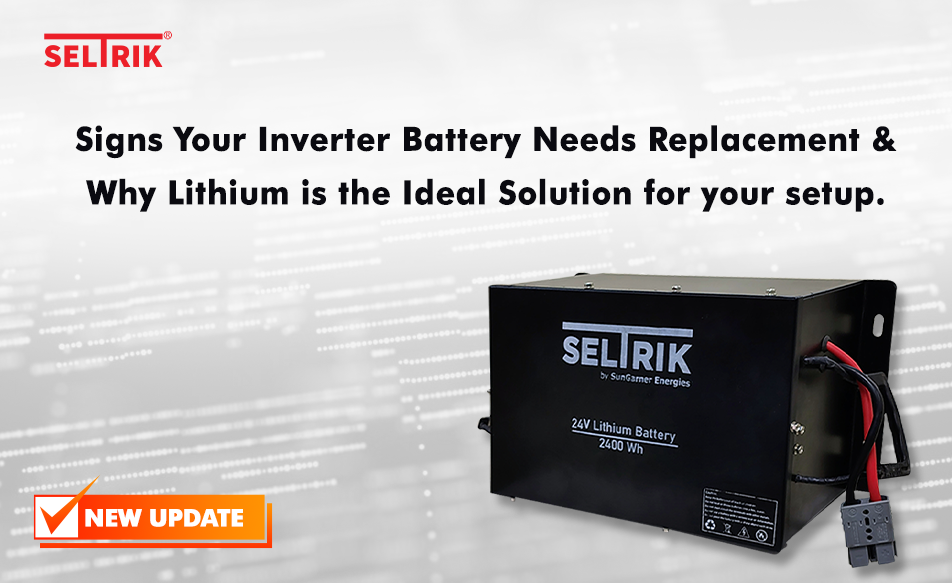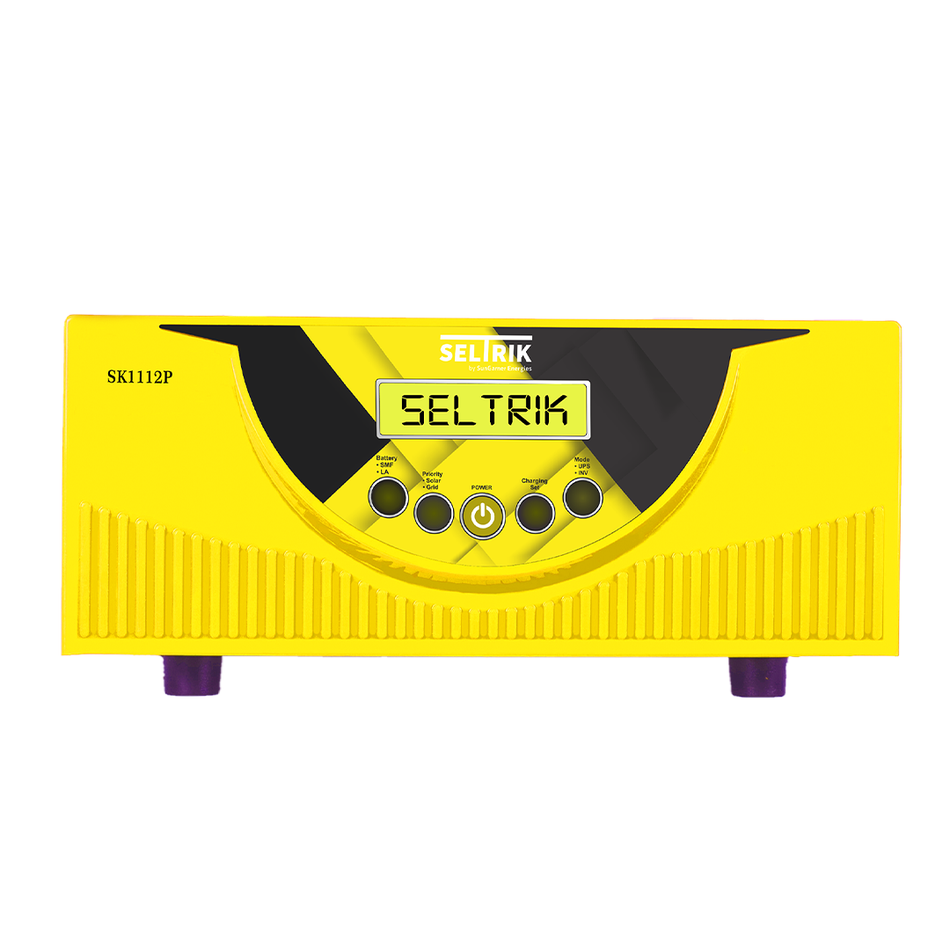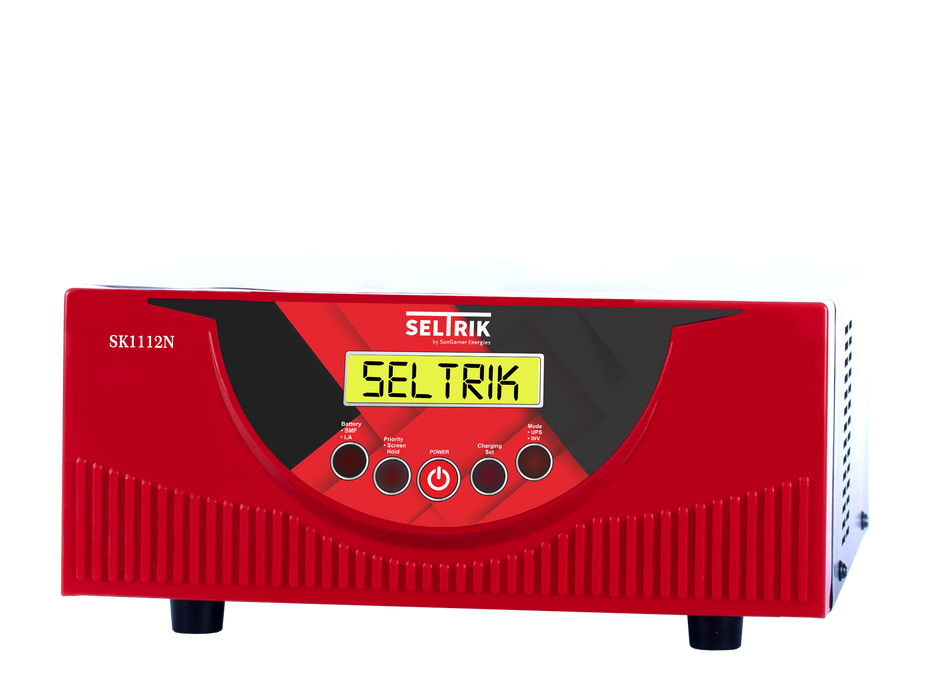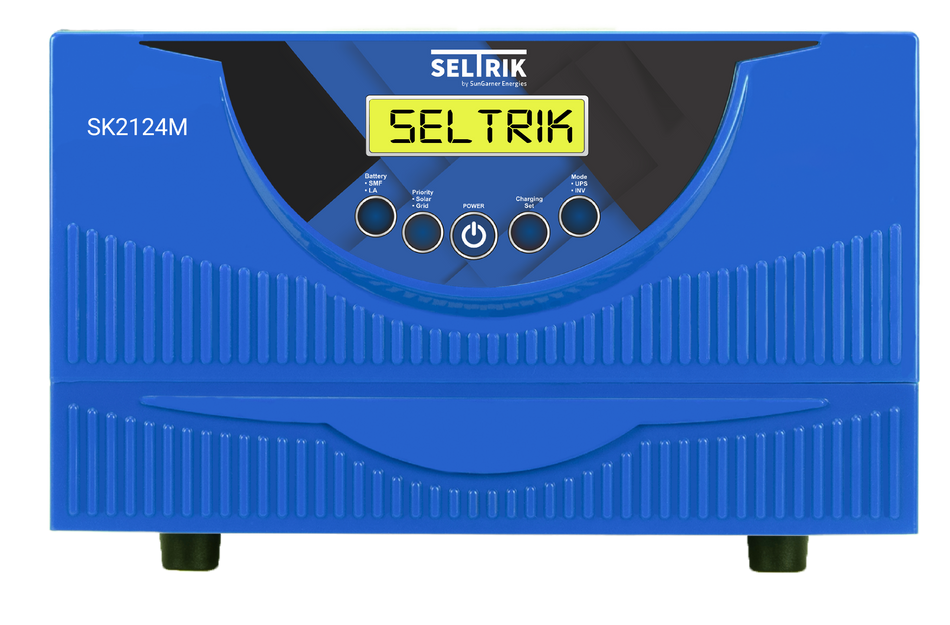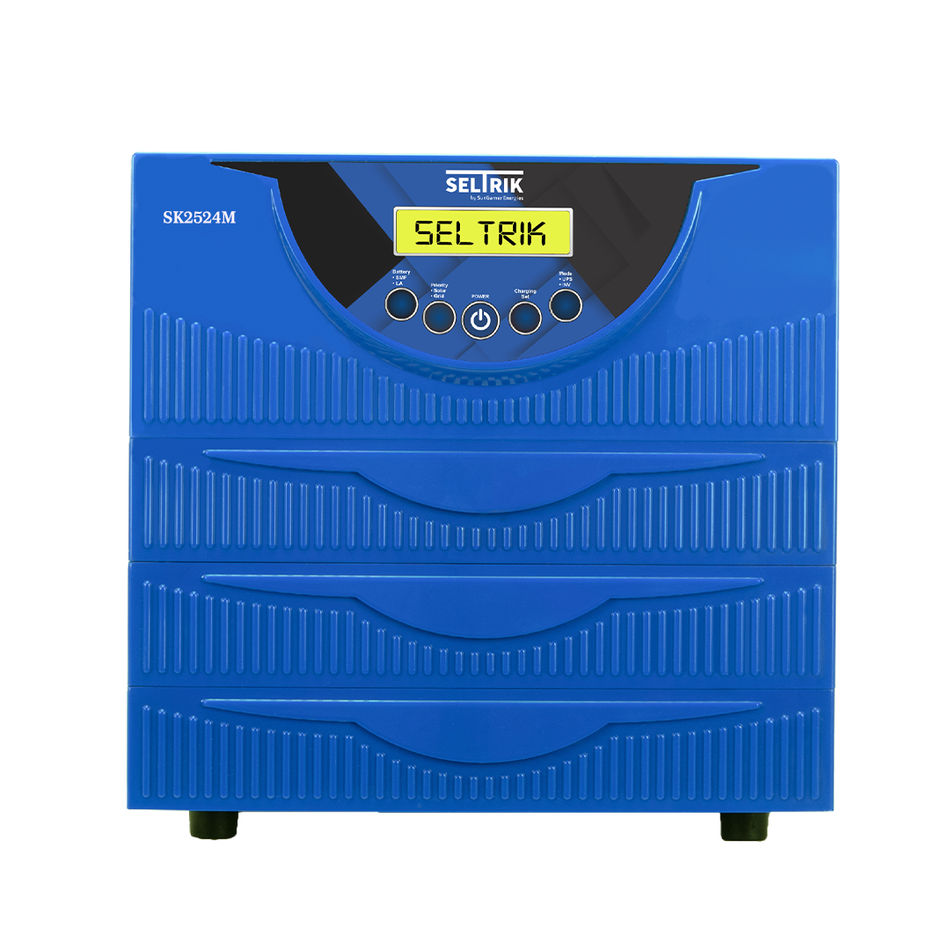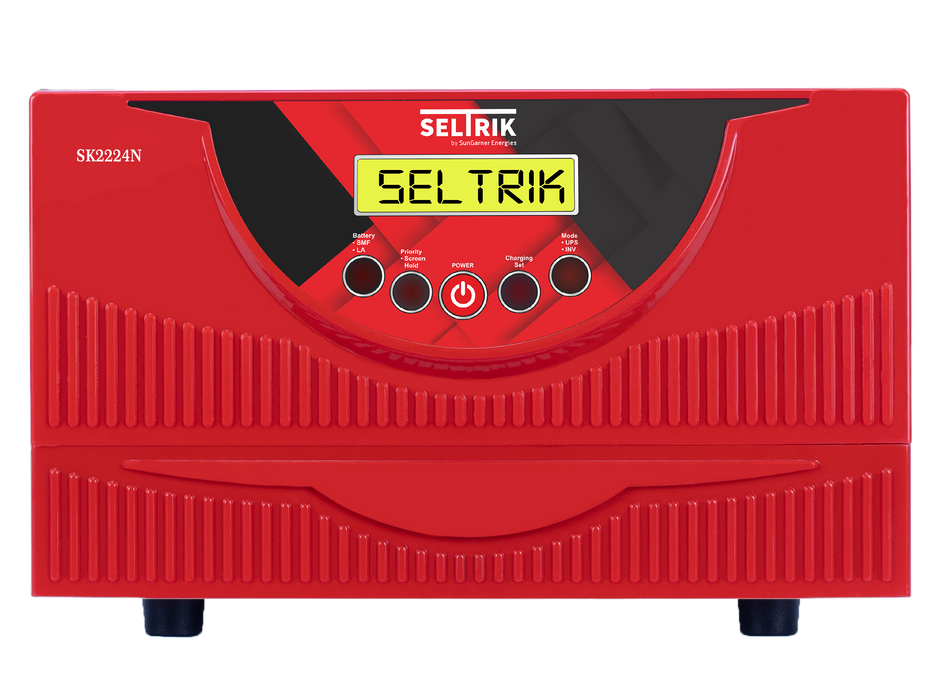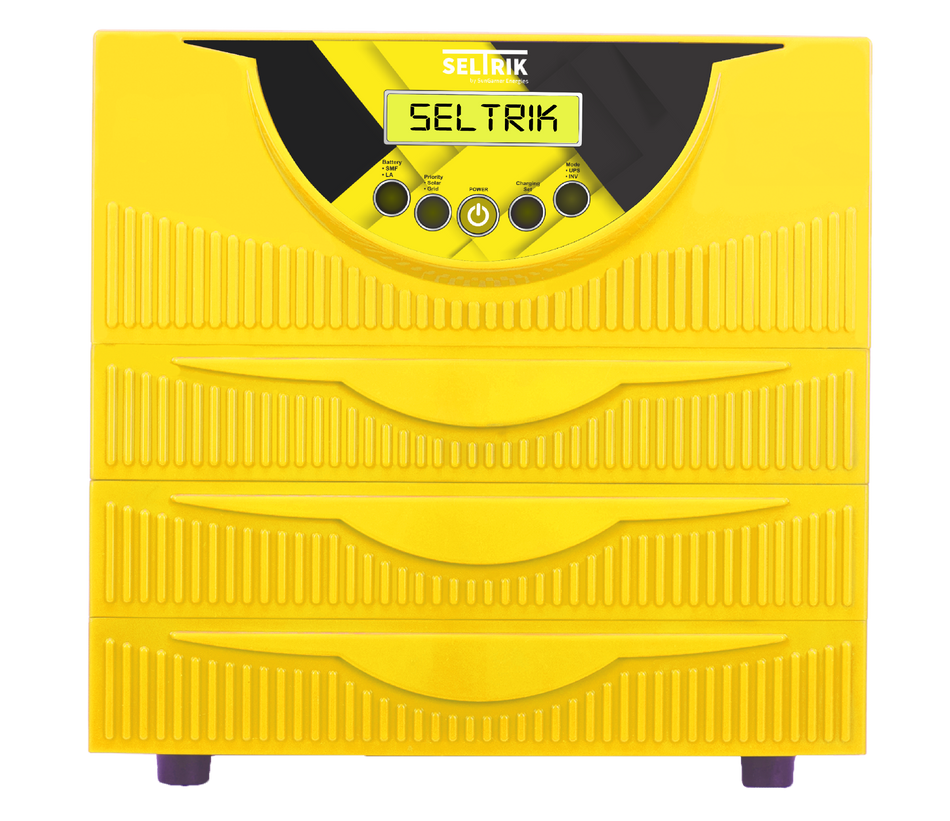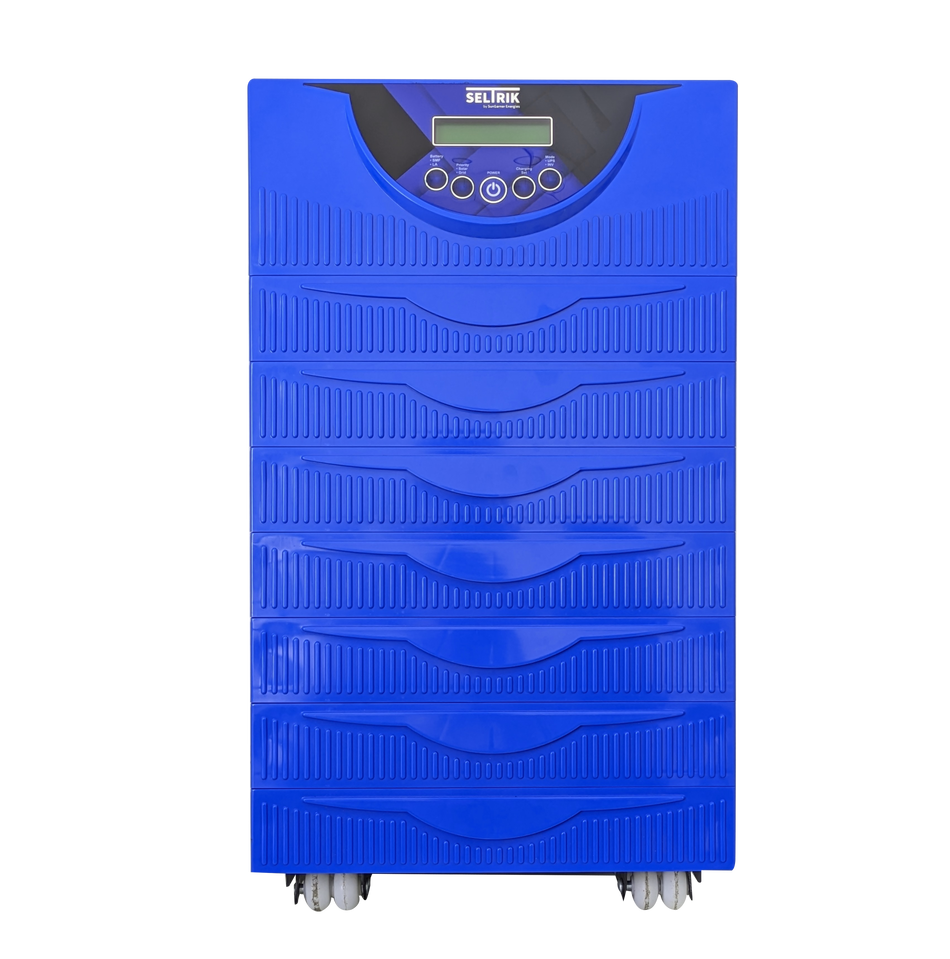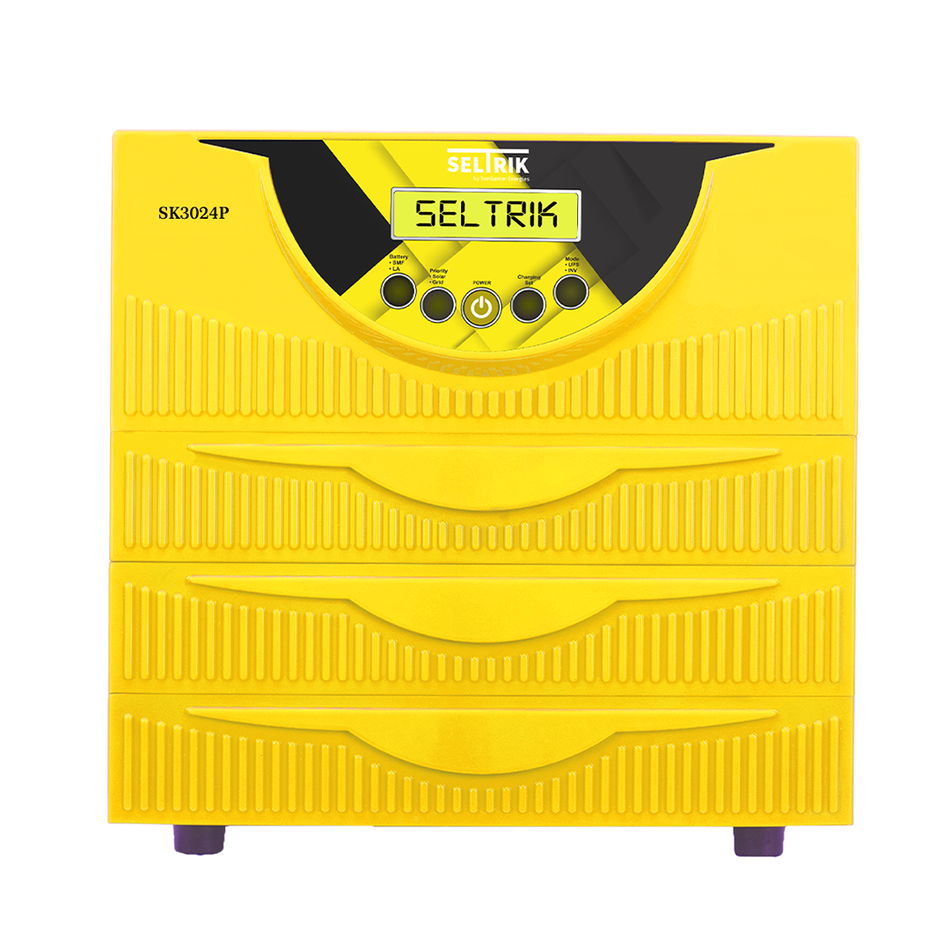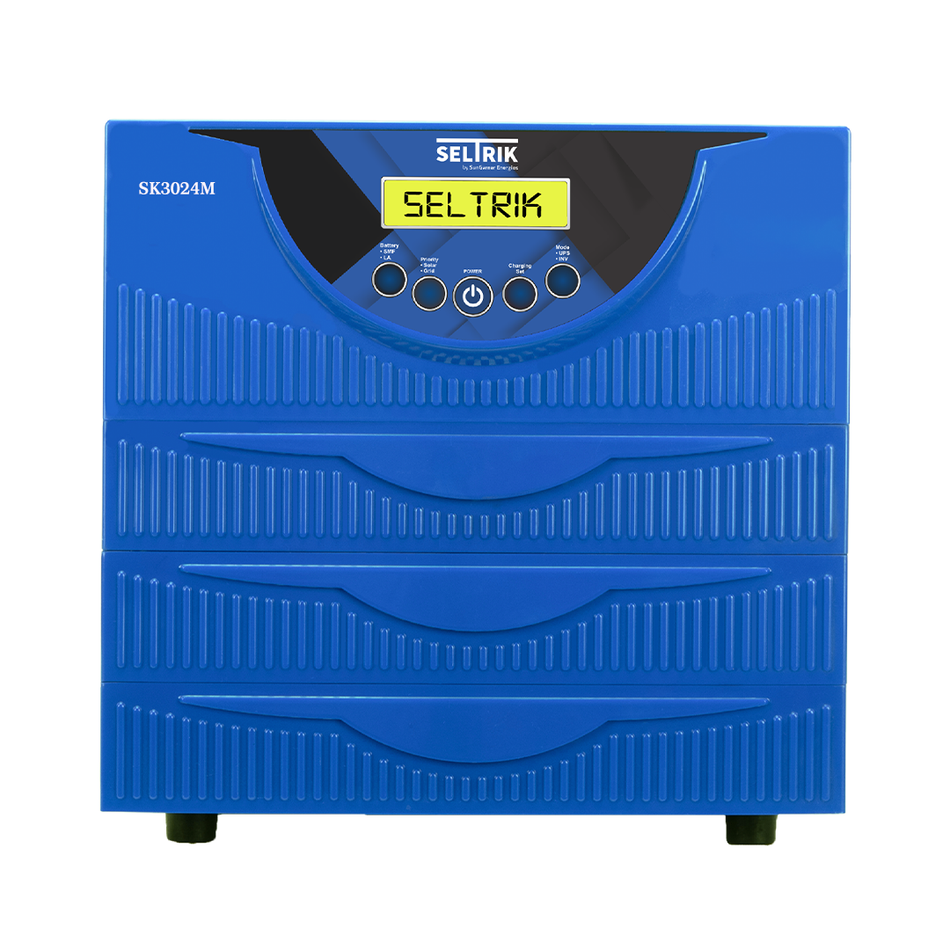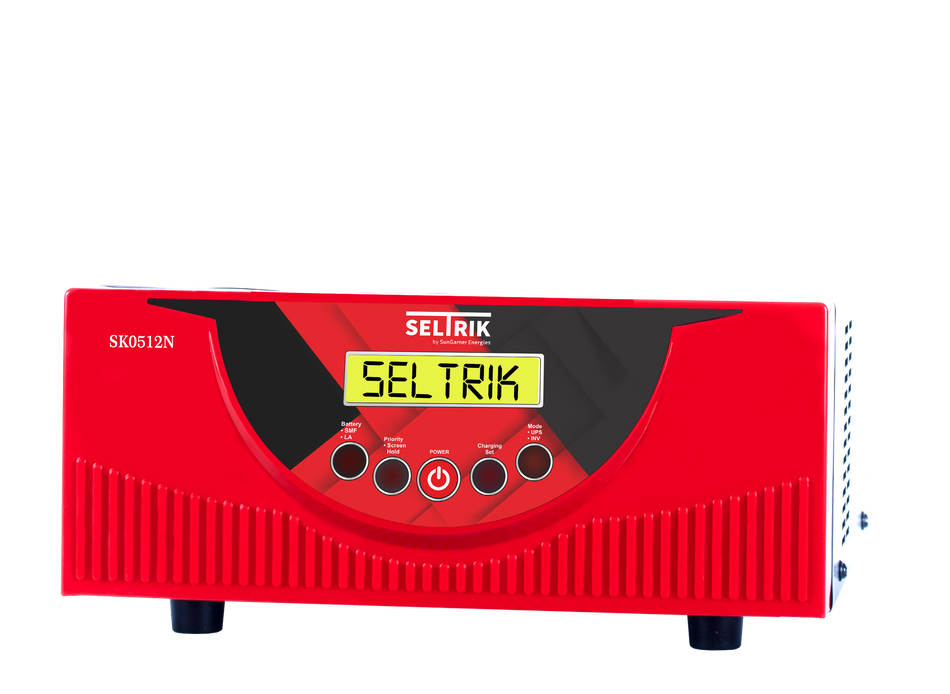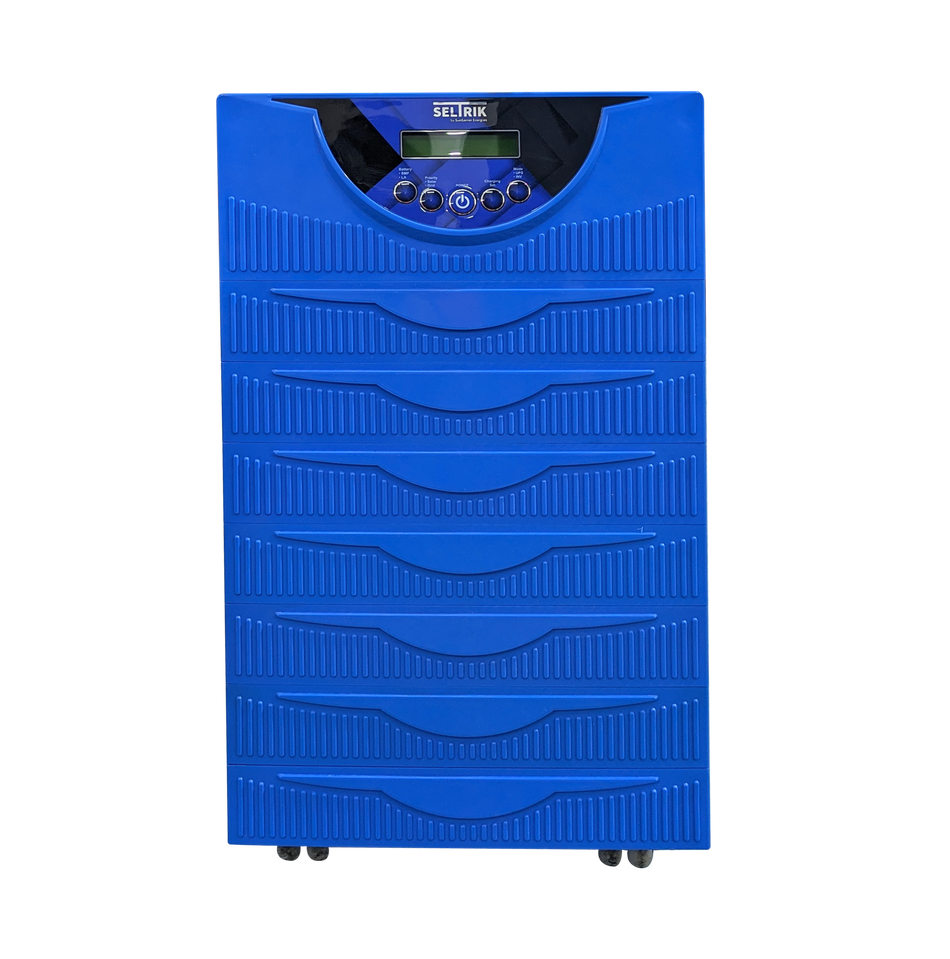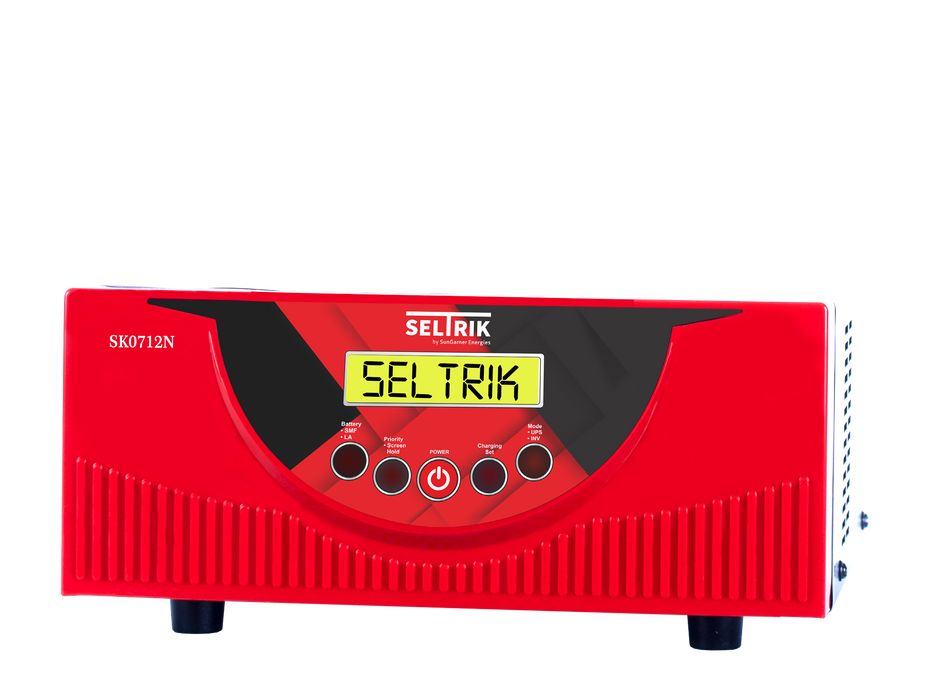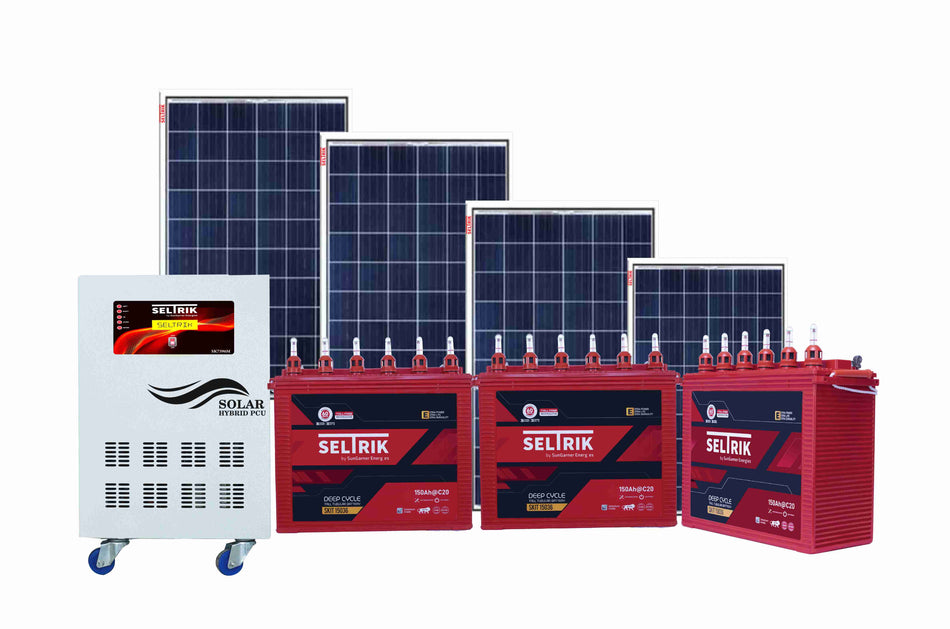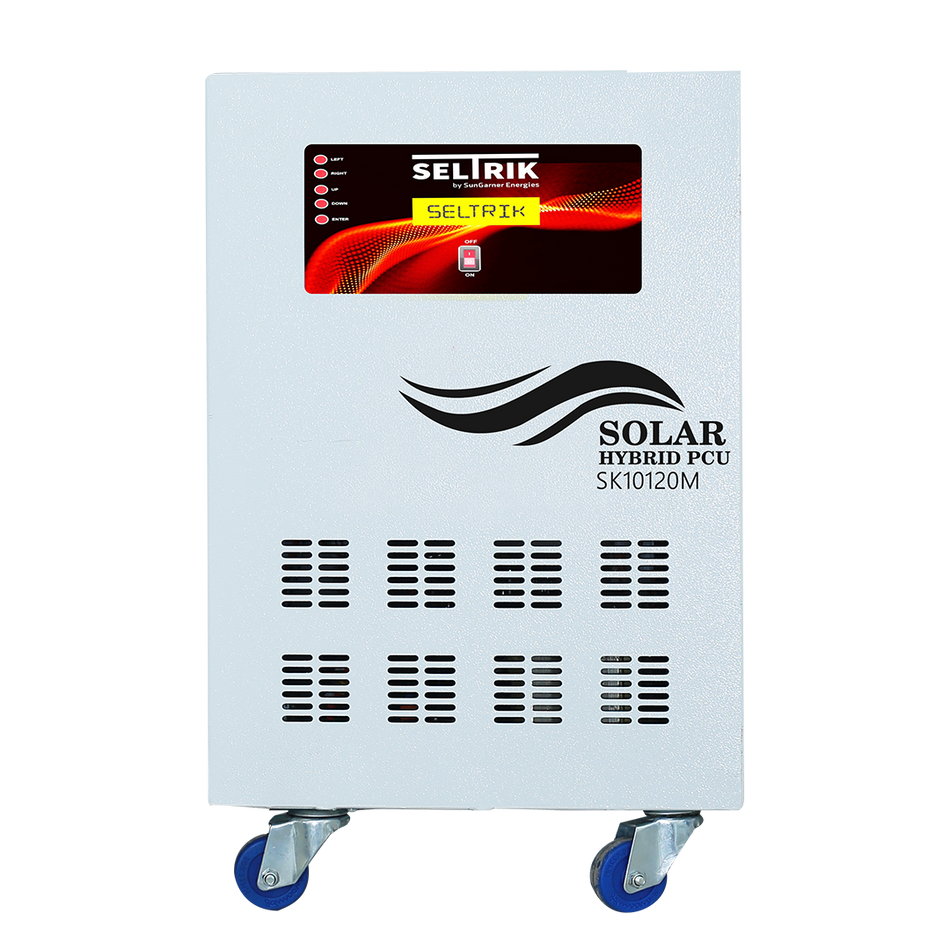The battery is the heart of any power backup system, storing energy and delivering it as usable power during outages. Its role is crucial in ensuring that daily activities remain uninterrupted, even during power cuts. This makes it essential to properly maintain and care for inverter batteries to guarantee optimal performance.
Like any other electrical component, batteries require regular monitoring and maintenance to function at their peak. Over time, however, even well-maintained batteries can degrade, leading to performance issues. Recognizing the signs of a deteriorating battery early on can help you address problems before they escalate, ensuring reliable and efficient performance for the long term.
In this guide, we’ll explore key signs that indicate your inverter battery may need replacement. We’ll also share tips on maintaining your battery to maximize its lifespan and performance.
Key Signs Your Inverter Battery Needs Replacement
If your inverter battery is unable to provide power for its usual duration during outages, it’s a clear sign that the battery is losing its capacity. This can happen due to several reasons, including aging, improper maintenance, overuse, or sulfation (a buildup of lead sulfate crystals).
A healthy battery should sustain your appliances for a consistent period, as per its rated capacity. However, when the backup duration begins to noticeably decrease, it indicates that the battery can no longer hold a sufficient charge. This not only disrupts your daily activities but also affects the overall efficiency of your power backup system.
Addressing this issue promptly by either maintaining or replacing the battery can prevent further inconvenience and ensure uninterrupted power supply when needed.
Battery Leakage
Visible signs of electrolyte spillage or leakage are a clear indication of internal damage to the battery. Such issues should be addressed immediately, as they not only compromise the battery's performance but also pose safety risks.
Batteries are designed to remain leak-free throughout their lifespan. Leakage can occur due to factors such as physical damage, overcharging, or deterioration of internal components. Regularly inspecting your battery for signs of leakage is crucial to ensuring its proper functioning and preventing further complications.
Prompt action can help avoid more significant problems, protect your inverter system, and maintain a safe environment. If leakage is detected, replacing the battery with a high-quality, reliable option is strongly recommended.
Extended Charging Time
A well-functioning inverter battery should charge fully within a specific time frame, as determined by its capacity and efficiency. If you notice that the battery takes significantly longer to charge than it used to, it’s a sign that its ability to absorb and store energy has declined.
This extended charging time typically indicates issues such as aging battery cells, sulfation buildup, or internal damage to the battery. Over time, the chemical reactions within the battery become less efficient, leading to slower energy absorption and reduced overall performance.
Addressing this issue promptly is important to avoid disruptions during power outages. Upgrading to energy-efficient batteries, like those offered by Genus, can help resolve this problem. Genus batteries are designed with advanced technology for quick charging, ensuring your power backup system is ready when you need it most. Stay powered and uninterrupted with reliable, fast-charging battery solutions.
Aging Signs or Visible Damage
Physical changes in the battery, such as bulging, swelling, cracks, or deformation, are clear indicators that the battery is no longer in optimal condition. These signs often point to internal issues such as overheating, chemical imbalances, or aging, which can compromise the battery’s performance and safety.
A swollen or cracked battery is not just a cosmetic issue—it’s a direct signal of potential failure and should be addressed immediately. Ignoring these signs can lead to further damage, reduced efficiency, and even safety hazards like leaks or, in extreme cases, fire hazards.
Regular visual inspections of your battery can help identify these problems early, allowing you to take corrective action before the situation worsens. Selecting a high-quality battery with robust safety features and a proven track record for durability can minimize the risk of such issues.
Investing in a dependable battery not only ensures a longer lifespan but also provides peace of mind, knowing your power backup system will perform reliably when needed.
Reduced Effectiveness
When an inverter battery starts losing its efficiency, it directly impacts the performance of your home appliances. Common signs include flickering lights, uneven performance of electrical devices, or sudden shutdowns under load. These issues occur because the battery can no longer deliver a stable and consistent current, which is essential for smooth operation.
Reduced effectiveness often stems from aging, wear and tear, or internal damage, causing the battery to struggle under heavy power demands. Ignoring these signs can lead to further disruptions and even strain your inverter system.
To avoid such inconveniences, it’s crucial to invest in a high-efficiency battery that ensures a reliable and steady power supply, even during high-load scenarios. Genus batteries, for instance, are rigorously tested and designed to provide uninterrupted and consistent performance tailored to modern power needs.
When to Replace Your Battery
All the signs mentioned—reduced backup duration, extended charging times, visible damage, leakage, and reduced effectiveness—indicate that it’s time to replace your inverter battery. Opting for a new, high-performing battery is a smarter and more cost-effective solution than repeatedly spending on repairs and maintenance.
Switching to a reliable and advanced battery not only restores uninterrupted power during outages but also enhances the overall efficiency of your power backup system, ensuring peace of mind and long-term savings.
Why Lithium Batteries Are the Best Replacement for Old Battery Setups
1. Fast Charging
One of the standout features of lithium-ion batteries is their ability to charge quickly. Unlike traditional batteries that require extended periods to reach full capacity, lithium batteries can be charged to 100% in a fraction of the time.
This fast-charging capability not only enhances convenience but also ensures that your battery is ready to deliver power when you need it most. Additionally, lithium-ion batteries can efficiently handle both rapid and partial charging cycles, making them ideal for dynamic energy requirements.
The efficiency of their charging process also translates to cost savings on electricity bills. With less energy wasted during charging and shorter charge times, lithium batteries provide a more economical and environmentally friendly solution for modern power backup needs.
2. Zero Maintenance
Lithium-ion batteries eliminate the need for regular upkeep, such as cleaning or water topping, which is common with traditional batteries. These batteries are truly zero-maintenance, saving you both time and effort while ensuring consistent performance. With their hassle-free operation, you can focus on enjoying uninterrupted power without worrying about routine maintenance tasks.
3. Lightweight Design
Lithium-ion batteries are significantly lighter than conventional batteries, making them much easier to carry, install, and handle. Their lightweight design not only simplifies the installation process but also adds to their versatility, making them suitable for various applications where portability and ease of handling are priorities.
4. Safe and Eco-Friendly
Lithium-ion batteries are designed with safety and sustainability in mind. Unlike traditional batteries, they do not emit harmful gases or pose leakage risks, making them a much safer and more reliable choice. Their eco-friendly nature ensures minimal environmental impact, making them an ideal option for those looking to replace old batteries responsibly.
5. Long Battery Life
One of the most significant advantages of lithium-ion batteries is their extended lifespan. These batteries not only last longer than traditional ones but also maintain their effectiveness and performance over time. This durability ensures consistent power delivery and makes them a superior choice for long-term use in power backup systems.
Conclusion
Inverter batteries are crucial for ensuring uninterrupted and reliable power during outages. Like any other electrical component, batteries have a finite lifespan, and replacing them at the right time is essential to maintain optimal performance.
With Seltrik, upgrading your old batteries is effortless. Choose from a wide range of high-quality, dependable lithium-ion batteries tailored to your specific needs. Enjoy the peace of mind that comes with uninterrupted power and enhanced efficiency during power cuts. Make the smart choice today and experience the difference!
FAQs
Q. What are the benefits of replacing my old inverter battery with a lithium-ion battery?
A. Replacing your old battery with a lithium-ion battery offers numerous benefits, including longer lifespan, faster charging, improved energy efficiency, and zero maintenance requirements.
Q. How can I tell if my inverter battery needs to be replaced?
A. Watch for signs such as physical damage or swelling, longer charging times, leakage, shorter backup durations, or reduced appliance performance.
Q. Why is my inverter battery taking longer to charge?
A. Slow charging could result from poor maintenance, aging battery cells, or internal damage, all of which are indicators that your battery may need replacement.
Q. Is it safe to use a swollen or leaking battery?
A. No, using a damaged battery poses significant safety risks. If you notice swelling or leakage, replace the battery immediately to avoid potential hazards.
Q. Can I replace my lead-acid inverter battery with a lithium-ion battery?
A. Yes, lithium-ion batteries are a modern, efficient, and low-maintenance alternative to traditional lead-acid batteries. They are fully compatible and offer enhanced performance.
Also Read: MPPT vs. PWM: Choosing the Right Solar Inverter for Your Home/ Office
Contact Us for Immediate Assistance:
WhatsApp Support: +91 7428744994
Toll Free No. 1800 102 2748
Email Support: office@seltrik.com
or
You may register your Complaints
With these contact options, expert help is just a message or call away. Our dedicated customer support team is committed to ensuring your inverter battery functions optimally, no matter the weather.
You can purchase best inverters for your home & offices online through Flipkart and Amazon.
Tags: Solar Inverter, Lithium-ion Compatible Inverter, Lithium Battery, MPPT Inverter, PWM Inverter, Pure Sine Wave Inverter

